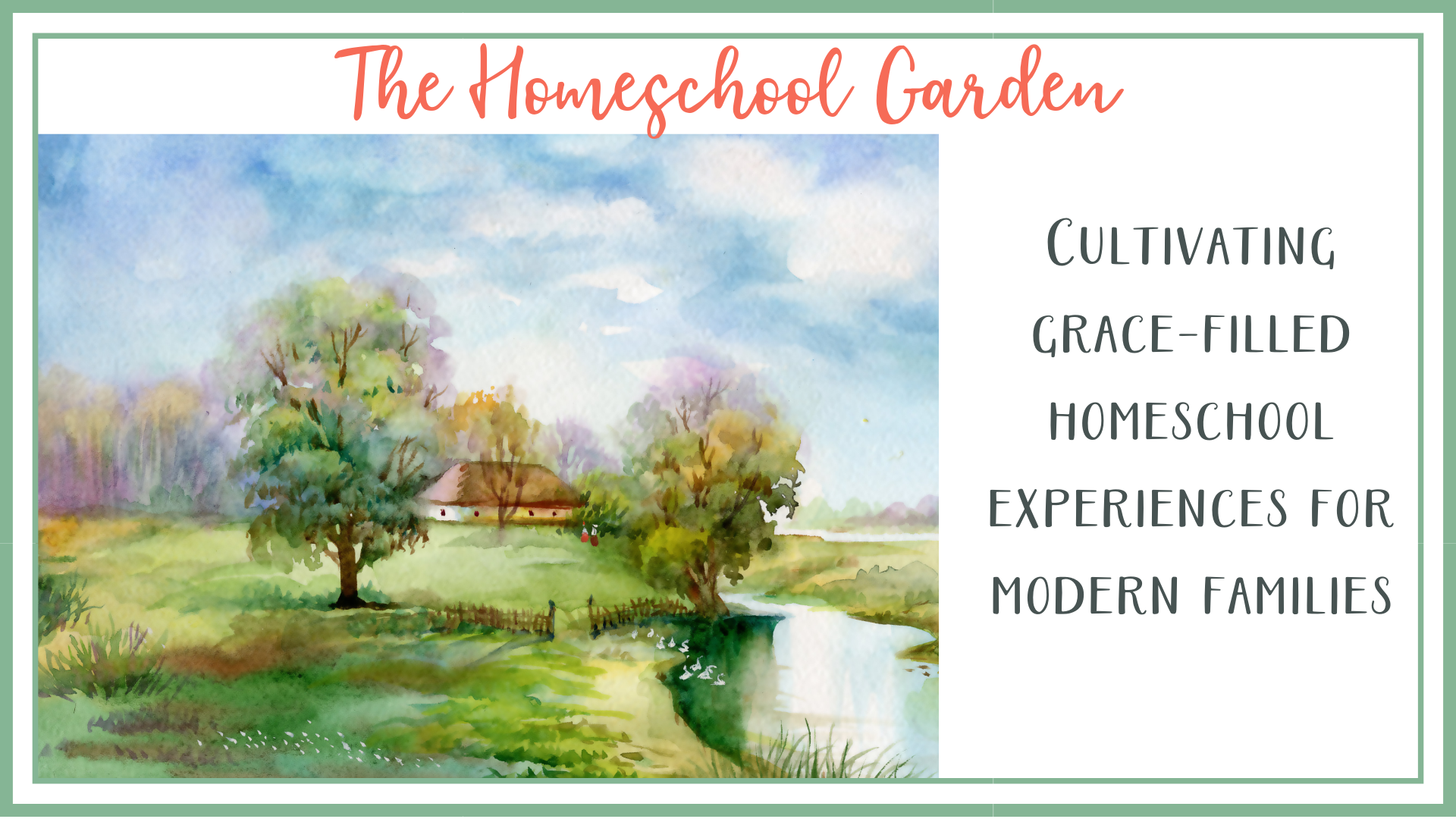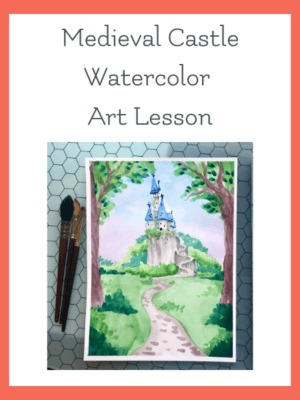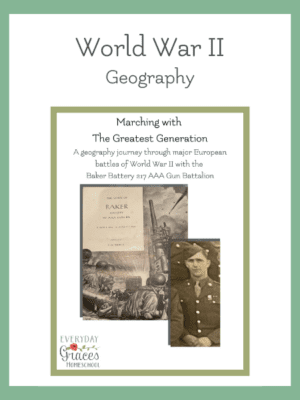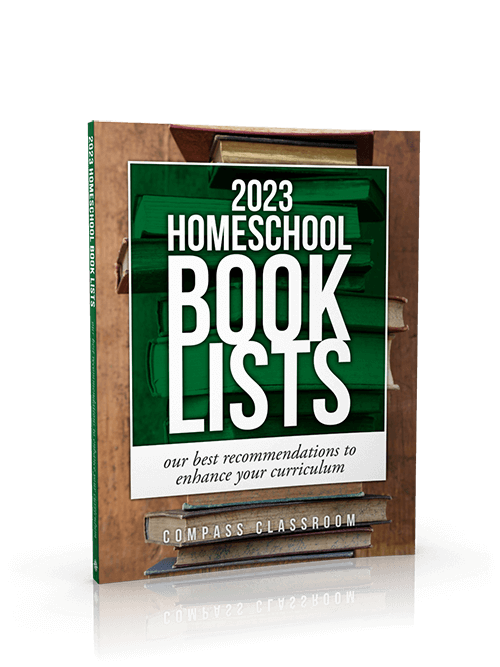
Today’s episode of Cultivating Grace is sponsored by:
The Homeschool Garden Charlotte Mason Inspired Morning Time Plans for Busy Families
Listen here:
What’s really important when it comes to homeschooling?
Hey homeschool moms, Andrew Pudewa here. It’s a pleasure to be with you, and I’m happy to be able to share a few thoughts about what, in our experience of homeschooling, is probably the most important stuff.
It’s great. I’ll tell you, you have a lot to look forward to being homeschool-graduate mom, and having your kids all grown up, because what you realize sometimes is the things that you were quite stressed about and worried much are not necessarily all that terribly important in the big picture. And then some of those things that you didn’t realize were so important turned out to be very pivotal, very formative for your family, for your children.
I think it’s easy to get discouraged, especially if you have several children and you’re homeschooling them and they’re all different ages most likely, and you’re thinking, “Okay, which kid is in which grade and which books do I have to have with which curriculum for each child, and how do I get them to march through all of these subjects on schedule?”
And that often is what happens when people start homeschooling, especially if their children were in a school and you’ve come out of a school and you’re thinking about that grade level idea.
So one of the things that my wife and I, we continuously worked on this and it’s not easy, but it’s to get over that compulsion to compare children based on age. You know, one of the talks I’ve done for the last couple of years is called “However Imperfectly: Seven Lessons from 30 years of Teaching.”
And one of those seven lessons is kind of like a duh, everybody knows this. It’s perfectly obvious. Only the world, especially in education does not really operate as though it’s true. So there’s a bit of a paradox there and it can cause some frustration, but the lesson very simply, which you already know is all kids are different.
And we know this. If you spend even a very short period of time with even two children, you will discover, yes indeed, they are very different. They have different neurology, they have different environmental influences. Even in the same home, they have a different souls, they have a different calling.
And yet we’re used to an educational environment that just puts everybody in the same room to read the same books according to the same schedule, to do the same thing in the same way and expect the same result. And that’s perhaps one of the reasons that you chose to come out of that system and decide to homeschool.
But we carry that baggage with us. A lot of times I’ll be at a conference or convention or something, and a homeschooled parent will come up to me say, “Well, you know, we just pulled our kids out of school and I’ve got a seventh grader and a fifth grader and a second grader, and I’m a little worried about my fifth grader. I think he’s behind.” You know, my reaction, my question would be “Behind whom? Who are you comparing this child with? And if so, why are you doing so?”
Because there’s no real, every-child-by-merit-of-being-approximately-five-years-old should do this level of reading or this kind of writing or this degree of math or know this set of information. Every child’s different.
You could walk into the best school in the world and even if all the children were born on the same day, you would still find probably two to three “grade levels” of difference between the top and the bottom. And so when we home school, one of the great, great blessings possibly, I would say the greatest, at least pedagogical advantage, the greatest advantage we have in teaching is that we don’t have to have that concept of being attached to because my child is X years old, he must be in Y grade and therefore if he is I’m okay, and if he isn’t well then I’m either great or I’m miserable, you know? But comparing is is never beneficial. It always leads to to pride or bitterness.
[socialpug_tweet tweet=”The greatest advantage we have in teaching is that we don’t have to have that concept of being attached to because my child is X years old, he must be in Y grade. #homeschool #cultivatinggrace” display_tweet=”The greatest advantage we have in teaching is that we don’t have to have that concept of being attached to because my child is X years old, he must be in Y grade.”]
There’s a charming book and I hope you all are following along with this great revival in reading out loud to children. I’ve talked about it a great deal. I’m betting many of you are followers of Sarah MacKenzie and the Read Aloud Revival, possibly you’ve got her book, The Read Aloud Family, and then Meghan Cox Gurdon, she’s the children’s book editor for the Wall Street Journal, just wrote a book that was published, Simon & Schuster, I believe, called The Enchanted Hour, which this is going mainstream. This reading out loud to children is going wide, wide and I’m so excited about this because I think it’s the number one most important thing you can do every day.
The Read Aloud Family The Enchanted Hour
The Enchanted Hour
So I think for my wife and for me looking back over the 30 years really that we have had children at home and homeschooling, almost all of them, almost all of that time we can say the the time spent where each child was as engaged as they could be at their level, the time spent doing things together, reading out loud as a family, doing things like competitive speech and debate or musical theater, some of those what we might consider extracurricular activities actually probably in retrospect were the most valuable.
And then the stress over whether you finish the math book with the 6/7 on the cover by the end of the school year, that’s probably the least important thing in the long run, in the big picture of who they become.
So I would just encourage you, try to stay free of that little bugaboo that’s deep inside all of us, that somehow we have to compare children based on age, and instead look at each child as an individual. What’s the next best step for them? And as much as possible, and particularly as they get older, giving them more and more freedom to pursue their own interests and passion.
So keep on keeping on. You’re doing the most important work that’s happening on the planet today. So do not grow weary in doing good.
Get a FREE IEW Lesson here.
Our favorite IEW homeschool resources:
Teaching Writing: Structure and Style® Bible Heroes Writing Lessons
Bible Heroes Writing Lessons Phonetic Zoo Spelling Level A
Phonetic Zoo Spelling Level A All Things Fun & Fascinating
All Things Fun & Fascinating However Imperfectly
However Imperfectly Fairy Tales and the Moral Imagination
Fairy Tales and the Moral Imagination
About Mr. Pudewa:

Andrew Pudewa is the founder and principal speaker of the Institute for Excellence in Writing and a father of seven. Traveling and speaking around the world, he addresses issues related to teaching, writing, thinking, spelling, and music with clarity, insight, practical experience, and humor. His seminars for parents, students, and teachers have helped transform many a reluctant writer and have equipped educators with powerful tools to dramatically improve students’ skills.
Although he is a graduate of the Talent Education Institute in Japan and holds a Certificate of Child Brain Development from the Institutes for the Achievement of Human Potential in Philadelphia, Pennsylvania, his best endorsement is from a young Alaskan boy who called him “the funny man with the wonderful words.” He and his wonderful, heroic wife, Robin, have homeschooled their seven children and are now proud grandparents of eleven, making their home in Tulsa, Oklahoma.
Find IEW online:








Leave a Reply